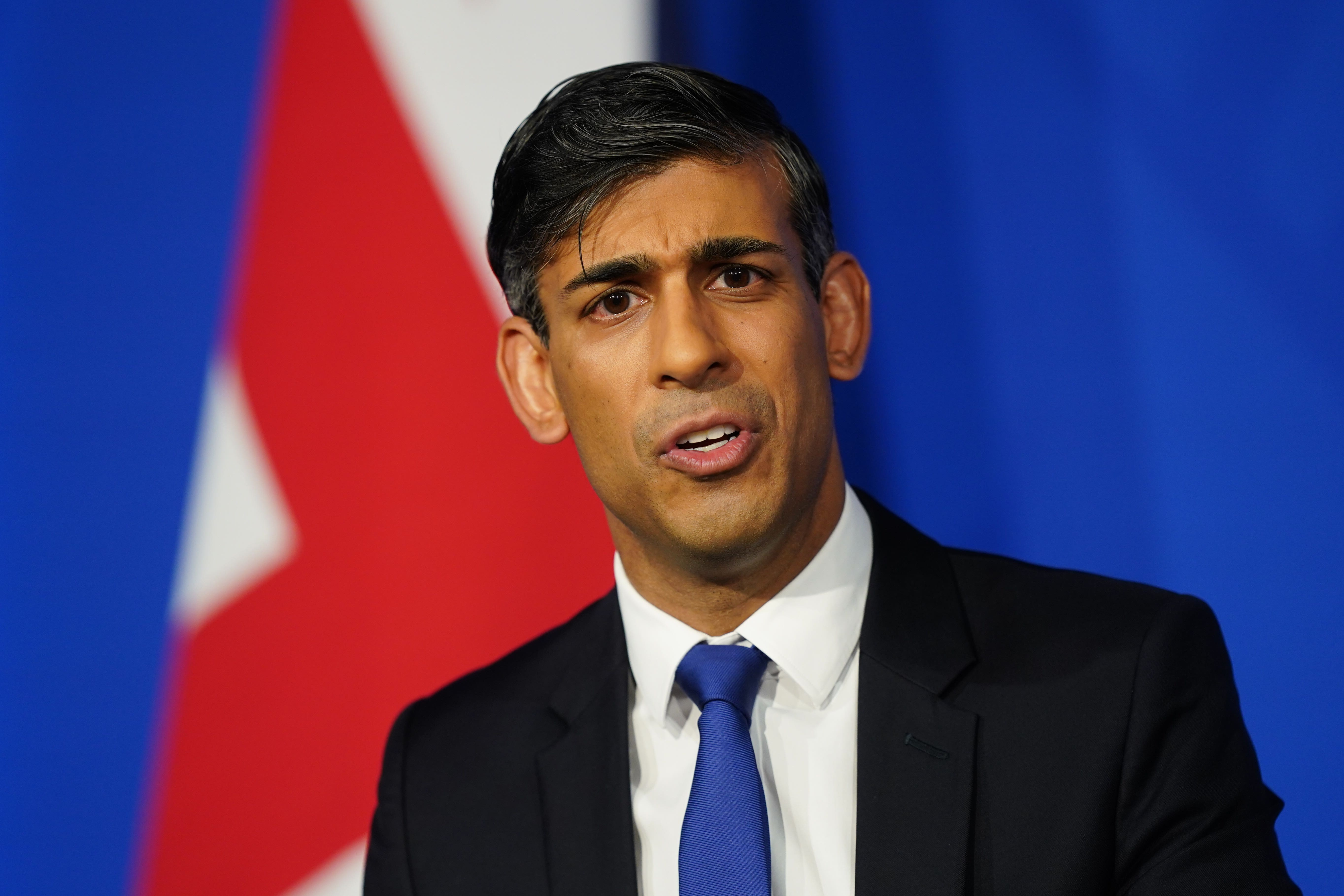Sunak dismisses Tory dissent over Rwanda Bill as ‘debating society’ antics
The Prime Minister said he is ‘working night and day’ to get his flagship deportation plan off the ground.

Your support helps us to tell the story
From reproductive rights to climate change to Big Tech, The Independent is on the ground when the story is developing. Whether it's investigating the financials of Elon Musk's pro-Trump PAC or producing our latest documentary, 'The A Word', which shines a light on the American women fighting for reproductive rights, we know how important it is to parse out the facts from the messaging.
At such a critical moment in US history, we need reporters on the ground. Your donation allows us to keep sending journalists to speak to both sides of the story.
The Independent is trusted by Americans across the entire political spectrum. And unlike many other quality news outlets, we choose not to lock Americans out of our reporting and analysis with paywalls. We believe quality journalism should be available to everyone, paid for by those who can afford it.
Your support makes all the difference.Rishi Sunak dismissed dissent over his Rwanda Bill by cantankerous Tory MPs as “debating society” behaviour and said he is working “tirelessly” to get the plan off the ground.
The Prime Minister won a crunch vote in the Commons on his emergency legislation aimed at reviving the policy to deport some asylum seekers to the African nation.
But he faces further opposition to his Bill from hardliners and more moderate wings of his party when it returns to the Commons next year.
Mr Sunak refused to say how soon flights to Kigali will take off if he gets the legislation through the Commons and Lords, where it is also expected to face heavy scrutiny.
“I’m keen to crack on with it,” is all he would say when asked about timings in an interview with The Spectator.
Right-wing Tory factions have threatened to vote down the Bill unless it is hardened, including by denying asylum seekers individual appeals.
But this could risk losing the backing of more centrist Tories, who are keen to protect the legislation against breaches of international law.
In a bid to pre-empt rebellion, Mr Sunak told the magazine that Rwanda will not take deportees who have no legal recourse to Strasbourg.
“What the country wants is a practical government that is making a difference to their lives and changing things for the better, not a debating society,” he said.
“People are frustrated that the pace of change is not fast enough. I get that. I am working night and day, tirelessly, to keep making a difference.”
Earlier, Justice Secretary Alex Chalk stressed ministers’ commitment to “staying within the four corners of our international legal obligations”, including by retaining limited allowances for personal claims against being sent to Kigali.
The legislation is designed to prevent migrants who arrive via unauthorised routes from legally challenging deportation to Rwanda after the Supreme Court ruled the flagship policy unlawful.
The plan to send some asylum seekers to Rwanda is a key plank of Mr Sunak’s pledge to “stop the boats”.
Asked whether the promise, made at the start of the year, was a mistake, Mr Sunak said: “No, I think it’s a straightforward phrase.
“Everyone knows what I wanted to do. I do ultimately want to stop the boats, because there isn’t an acceptable amount of illegal migration.”
He added: “If someone had said to me, ‘You are going to have reduced the number of small boat arrivals into this country by a third’, after they had quadrupled in the last few years… I think someone would have said, ‘What are you smoking?'”
We will also need to ensure that whatever sensible ideas come up, we remain within the four corners of our international legal obligations
Right-wing Tories who rebelled by abstaining in Tuesday’s Commons vote said Mr Sunak had signalled he could consider “tightening” the Rwanda Bill.
But Mr Chalk said that while the Government is “willing to listen to sensible suggestions”, it must uphold “certain aspects” to ensure the UK remains within international law.
Appearing before Parliament’s Human Rights Committee on Wednesday, he said the Government is “committed” to remaining within the European Convention of Human Rights, which it does “so long as there is the ability of an individual to get before the court to advance their points, which might relate to their own specific circumstances”.
Mr Chalk, who belongs to the more moderate wing of the party, added: “Of course, there may be differences of views, but we will also need to ensure that whatever sensible ideas come up, we remain within the four corners of our international legal obligations.”